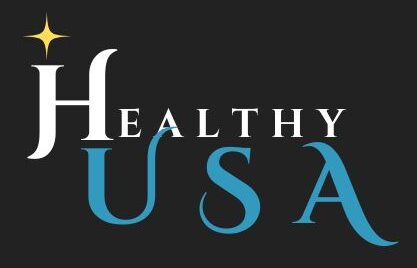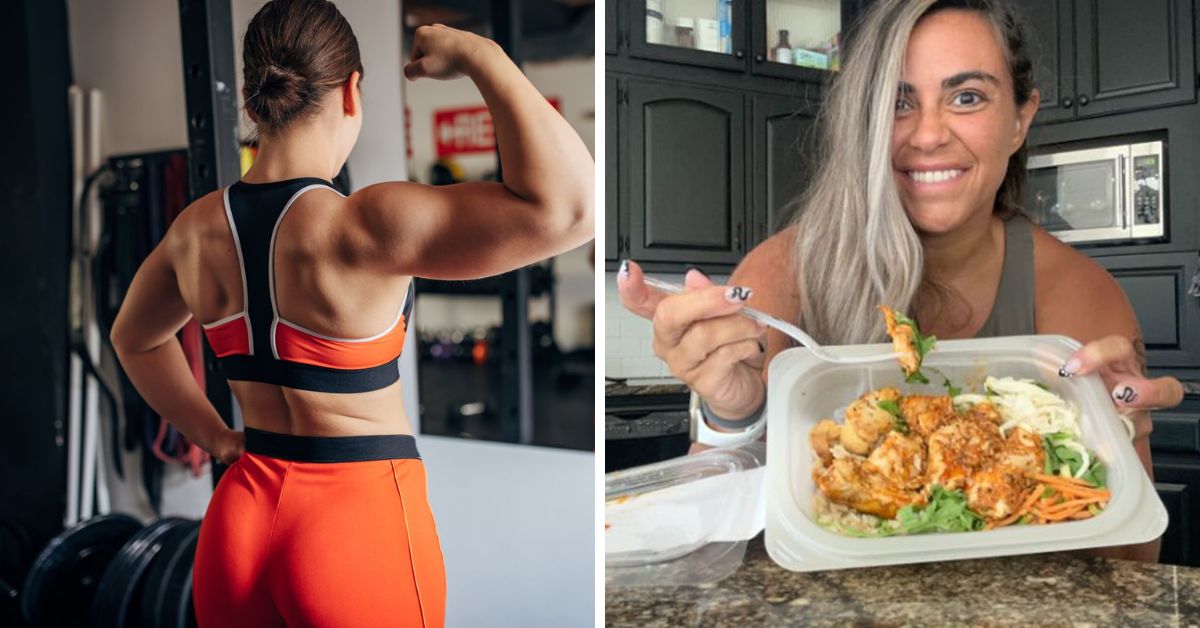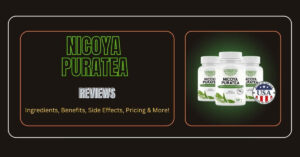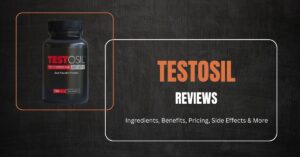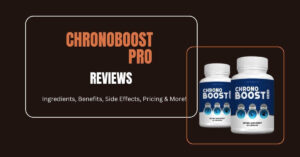Building muscle requires a combination of consistent strength training, adequate rest, and most importantly, proper nutrition. Your diet plays a pivotal role in how effectively and efficiently you can gain muscle. Knowing what to cook to build muscle can make all the difference in your progress, ensuring that your body receives the nutrients it needs to repair and grow muscle tissue.
In this comprehensive guide, we will explore the best foods to include in your diet for muscle building, how to prepare them, and some meal ideas that can help you reach your muscle-building goals. This guide is tailored for those who are serious about gaining strength and muscle mass while enjoying delicious, nutritious meals.
The Importance of Nutrition in Muscle Building
While lifting weights and engaging in resistance training are essential for muscle growth, what you eat is equally, if not more, important. Your muscles need the right nutrients to recover and grow after a workout. Protein is the most critical macronutrient for muscle repair and growth, but carbohydrates and fats also play crucial roles in providing energy and supporting overall health.
When planning what to cook to build muscle, it’s essential to focus on meals that are rich in high-quality protein, complex carbohydrates, and healthy fats. Vitamins and minerals are vital for muscle function and recovery, so incorporating a variety of nutrient-dense foods into your diet is key.
Understanding Macronutrients for Muscle Building
Before diving into specific foods and recipes, it’s important to understand the role of macronutrients in muscle building.
1. Protein
Protein is the building block of muscle. It provides the essential amino acids needed for muscle repair and growth. When you engage in strength training, you create tiny tears in your muscle fibers. Protein helps to repair these tears, leading to muscle hypertrophy (growth).
The general recommendation for protein intake is about 1.2 to 2.2 grams of protein per kilogram of body weight, depending on your activity level and muscle-building goals. Including high-quality protein sources in every meal is crucial for building muscle effectively.
2. Carbohydrates
Carbohydrates are the body’s primary source of energy. They fuel your workouts and help replenish glycogen stores in your muscles, which are depleted during exercise. Complex carbohydrates, which are digested slowly, provide a sustained release of energy, making them ideal for muscle-building meals.
Including the right amount of carbohydrates in your diet is essential to ensure you have the energy to perform at your best during workouts and to recover afterward.
3. Fats
Fats are essential for hormone production, including testosterone, which plays a key role in muscle growth. Healthy fats also support joint health, reduce inflammation, and provide a concentrated source of energy. Incorporating sources of healthy fats into your diet will support your muscle-building efforts and overall health.
What to Cook to Build Muscle: Protein-Rich Foods
Protein is the cornerstone of any muscle-building diet. Here are some of the best protein-rich foods to include in your muscle-building meals:
1. Chicken Breast
Chicken breast is a staple in muscle-building diets due to its high protein content and low fat. A 100-gram serving of chicken breast provides around 31 grams of protein, making it an excellent choice for those looking to gain muscle mass.
How to Cook:
- Grilled Chicken Breast: Marinate the chicken in olive oil, lemon juice, garlic, and herbs. Grill on medium heat for about 6-7 minutes on each side until fully cooked. Serve with a side of steamed vegetables and brown rice for a complete meal.
- Baked Chicken Breast: Season with salt, pepper, paprika, and garlic powder. Bake in a preheated oven at 180°C (350°F) for 25-30 minutes until cooked through.
2. Lean Meat
Lean cuts of beef, such as sirloin or tenderloin, are packed with protein and essential nutrients like iron and zinc, which are important for muscle recovery and growth. A 100-gram serving of lean beef provides approximately 25-30 grams of protein.
How to Cook:
- Beef Stir-Fry: Slice lean beef into thin strips and stir-fry with a mix of colorful vegetables like bell peppers, broccoli, and snap peas. Serve over a bed of quinoa or brown rice.
- Grilled Steak: Season the steak with salt, pepper, and a touch of olive oil. Grill over medium-high heat for 4-5 minutes per side for medium-rare, or adjust cooking time to your preference.
3. Eggs
Eggs are one of the most complete sources of protein, containing all nine essential amino acids. A large egg provides about 6 grams of protein, along with healthy fats and various vitamins and minerals.
How to Cook:
- Scrambled Eggs: Whisk eggs with a splash of milk or water and cook in a non-stick pan with a bit of butter or olive oil until softly scrambled. Add spinach, mushrooms, or tomatoes for extra nutrients.
- Egg and Veggie Omelet: Beat eggs and pour into a hot pan with sautéed onions, bell peppers, and spinach. Cook until the eggs are set, then fold in half and serve with whole grain toast.
4. Greek Yogurt
Greek yogurt is an excellent source of protein, with a typical 200-gram serving providing around 20 grams of protein. It’s also rich in calcium and probiotics, which support gut health.
How to Cook:
- Greek Yogurt Parfait: Layer Greek yogurt with fresh berries, a drizzle of honey, and a sprinkle of nuts or granola for a quick, protein-packed breakfast or snack.
- Smoothies: Blend Greek yogurt with frozen fruits, spinach, and a scoop of protein powder for a nutrient-dense smoothie.
5. Fish (Salmon, Tuna, Cod)
Fish like salmon, tuna, and cod are not only rich in protein but also high in omega-3 fatty acids, which help reduce inflammation and support muscle recovery. A 100-gram serving of salmon provides about 25 grams of protein.
How to Cook:
- Grilled Salmon: Season salmon fillets with salt, pepper, and lemon juice. Grill on medium heat for about 4-5 minutes on each side until fully cooked. Serve with a side of quinoa and steamed asparagus.
- Tuna Salad: Mix canned tuna with Greek yogurt, chopped celery, and a squeeze of lemon. Serve on whole-grain bread or with a side of mixed greens.

What to Cook to Build Muscle: Carbohydrate-Rich Foods
Carbohydrates are essential for providing the energy needed for intense workouts and aiding in muscle recovery. Here are some of the best carbohydrate-rich foods to include in your muscle-building diet:
1. Sweet Potatoes
Sweet potatoes are a nutrient-dense carbohydrate source, providing complex carbs, fiber, and vitamins like A and C. They’re also rich in potassium, which supports muscle function.
How to Cook:
- Roasted Sweet Potatoes: Cut sweet potatoes into cubes, toss with olive oil, salt, and pepper, and roast in a preheated oven at 200°C (400°F) for 25-30 minutes until golden and tender.
- Mashed Sweet Potatoes: Boil sweet potatoes until tender, then mash with a bit of butter and a splash of milk. Season with salt, pepper, and a pinch of cinnamon for a sweet and savory side dish.
2. Oats
Oats are a whole grain that provides a steady release of energy, making them an ideal choice for pre-workout meals. They are also high in fiber, which supports digestion and overall health.
How to Cook:
- Overnight Oats: Combine oats with milk or a plant-based alternative, and let sit overnight in the refrigerator. In the morning, top with fruits, nuts, and a drizzle of honey for a quick, nutritious breakfast.
- Oatmeal: Cook oats on the stove with water or milk until soft and creamy. Stir in protein powder or Greek yogurt for added protein, and top with fresh berries and nuts.
3. Brown Rice
Brown rice is a whole grain that is rich in complex carbohydrates, fiber, and essential minerals like magnesium and phosphorus. It’s a staple in many muscle-building diets due to its versatility and nutritional profile.
How to Cook:
- Steamed Brown Rice: Rinse the rice and cook in a rice cooker or on the stovetop according to package instructions. Serve as a side dish with grilled chicken, beef, or fish.
- Brown Rice Bowl: Top cooked brown rice with a mix of lean protein, vegetables, and a drizzle of soy sauce or teriyaki sauce for a balanced muscle-building meal.
4. Quinoa
Quinoa is a unique carbohydrate source that is also a complete protein, containing all nine essential amino acids. It’s high in fiber, magnesium, and iron, which are important for muscle function and recovery.
How to Cook:
- Quinoa Salad: Cook quinoa according to package instructions, then mix with chopped vegetables, beans, and a light vinaigrette. This makes for a great side dish or a light lunch.
- Quinoa Bowl: Use cooked quinoa as a base and top with grilled chicken, avocado, black beans, and salsa for a nutritious, protein-packed meal.
5. Whole Grain Bread
Whole grain bread is another excellent source of complex carbohydrates that provide energy for your workouts. It’s also high in fiber, which supports digestion and overall health.
How to Cook:
- Avocado Toast: Spread mashed avocado on whole grain toast and top with a poached egg, cherry tomatoes, and a sprinkle of chili flakes for a delicious, muscle-building breakfast.
- Turkey Sandwich: Layer whole grain bread with slices of turkey, avocado, lettuce, and tomato for a protein-rich sandwich that’s perfect for lunch or a post-workout meal.
Also Read: What Foods Build Muscles Fast?
What to Cook to Build Muscle: Healthy Fats
Healthy fats are essential for muscle growth and overall health. They support hormone production, including testosterone, which is critical for muscle building. Here are some of the best sources of healthy fats to include in your diet:
1. Avocados
Avocados are rich in monounsaturated fats, which are heart-healthy and support hormone production. They also provide fiber, potassium, and vitamins C, E, and K.
How to Cook:
- Avocado Salad: Slice avocados and mix with cherry tomatoes, cucumber, and red onion. Drizzle with olive oil and lemon juice for a refreshing, nutrient-packed salad.
- Guacamole: Mash avocados with lime juice, salt, and chopped cilantro. Serve with whole grain crackers or as a topping for grilled chicken or fish.
2. Nuts and Seeds
Nuts and seeds are excellent sources of healthy fats, protein, and essential nutrients like magnesium and zinc. They also provide a good dose of fiber, which supports digestion and overall health.
How to Cook:
- Trail Mix: Combine almonds, walnuts, pumpkin seeds, and dried fruit for a quick, energy-boosting snack.
- Nut Butter Smoothie: Blend almond butter or peanut butter with a banana, spinach, and a scoop of protein powder for a creamy, satisfying smoothie.
3. Olive Oil
Olive oil is a staple in the Mediterranean diet and is known for its heart-healthy monounsaturated fats. It also has anti-inflammatory properties, which can aid in muscle recovery.
How to Cook:
- Salad Dressing: Whisk together olive oil, balsamic vinegar, Dijon mustard, and a pinch of salt and pepper for a simple, healthy salad dressing.
- Sautéed Vegetables: Use olive oil to sauté vegetables like spinach, kale, or bell peppers for a nutritious side dish.
4. Chia Seeds
Chia seeds are rich in omega-3 fatty acids, fiber, and protein, making them a nutrient-dense addition to any muscle-building diet. They also provide a good source of calcium, magnesium, and antioxidants.
How to Cook:
- Chia Pudding: Mix chia seeds with almond milk, vanilla extract, and a touch of honey. Let sit overnight in the refrigerator until it forms a pudding-like consistency. Top with fresh berries or nuts.
- Smoothie Booster: Add a tablespoon of chia seeds to your smoothies for an extra boost of fiber and omega-3s.
5. Almonds
Almonds are packed with healthy fats, protein, and essential nutrients like vitamin E, magnesium, and calcium. They are also high in fiber, which supports digestion and overall health.
How to Cook:
- Roasted Almonds: Roast almonds with a sprinkle of sea salt and a dash of cayenne pepper for a spicy, crunchy snack.
- Almond-Crusted Chicken: Coat chicken breasts in crushed almonds and bake until golden and crispy. Serve with a side of steamed vegetables.
Meal Planning: What to Cook to Build Muscle
Creating a meal plan is an effective way to ensure you’re consistently eating foods that support muscle growth. Here’s a sample day of eating to give you an idea of what to cook to build muscle:
Breakfast:
- Oatmeal with Greek Yogurt and Berries: Cook oats in water or milk and top with a dollop of Greek yogurt, fresh berries, and a drizzle of honey.
- Protein-Packed Smoothie: Blend Greek yogurt, spinach, frozen berries, and a scoop of protein powder for a nutrient-dense start to your day.
Lunch:
- Grilled Chicken Salad: Toss mixed greens with grilled chicken, avocado, cherry tomatoes, and a light vinaigrette.
- Quinoa and Black Bean Bowl: Combine cooked quinoa with black beans, corn, diced avocado, and salsa for a hearty, muscle-building lunch.
Dinner:
- Baked Salmon with Sweet Potato and Broccoli: Bake salmon fillets with olive oil, lemon, and herbs. Serve with roasted sweet potatoes and steamed broccoli for a balanced meal.
- Lean Meat Stir-Fry: Stir-fry lean beef strips with bell peppers, onions, and snap peas. Serve over brown rice for a filling, protein-packed dinner.
Snacks:
- Greek Yogurt with Nuts: A bowl of Greek yogurt topped with almonds or walnuts for a quick, protein-rich snack.
- Hard-Boiled Eggs: Prepare a batch of hard-boiled eggs to have on hand for a convenient, protein-packed snack.
FAQs
1. How much protein should I consume to build muscle?
To build muscle, it’s recommended to consume 1.2 to 2.2 grams of protein per kilogram of body weight daily. This amount may vary based on your activity level, age, and muscle-building goals. Incorporating protein-rich foods like chicken, beef, fish, eggs, and Greek yogurt into your diet can help you meet your protein needs.
2. What are the best foods to cook to build muscle?
The best foods to cook for building muscle include lean proteins like chicken, beef, and fish, complex carbohydrates like oats, quinoa, and sweet potatoes, and healthy fats from sources like avocados, nuts, and olive oil. These foods provide the essential nutrients needed for muscle repair, growth, and recovery.
3. Are carbohydrates important for muscle growth?
Yes, carbohydrates are important for muscle growth as they provide the energy needed for intense workouts. They also help replenish glycogen stores in your muscles, which are depleted during exercise. Including complex carbohydrates like brown rice, oats, and whole-grain bread in your diet can support your muscle-building efforts.
4. Can I build muscle on a plant-based diet?
Yes, you can build muscle on a plant-based diet by incorporating protein-rich plant foods like tofu, tempeh, lentils, and quinoa. It’s important to consume a variety of plant-based proteins to ensure you get all the essential amino acids needed for muscle growth.
5. How can I create balanced meals for muscle growth?
To create balanced meals for muscle growth, include a source of protein, complex carbohydrates, and healthy fats in each meal. For example, a meal of grilled chicken, quinoa, and roasted vegetables provides a balanced combination of macronutrients that support muscle growth and recovery.
6. What should I eat after a workout to build muscle?
After a workout, it’s important to consume a meal that includes both protein and carbohydrates. This helps to repair muscle tissue and replenish glycogen stores. A good post-workout meal could include a protein shake with a banana, a turkey sandwich on whole-grain bread, or Greek yogurt with oats and berries.
Final Thoughts
Knowing what to cook to build muscle is crucial for anyone serious about gaining muscle mass and improving their physique. By focusing on high-quality protein sources, complex carbohydrates, and healthy fats, you can create meals that not only support muscle growth but also provide the energy and nutrients your body needs to perform at its best.
Remember that consistency is key. Regularly incorporating these muscle-building foods into your diet, along with a proper exercise routine and adequate rest, will help you achieve your muscle-building goals. Whether you’re preparing meals for the week or cooking fresh every day, the right nutrition will play a significant role in your success.
